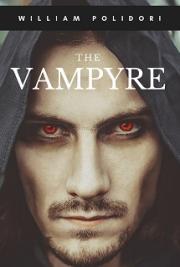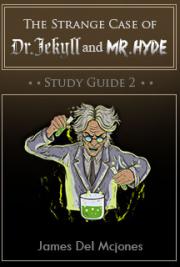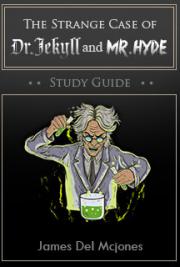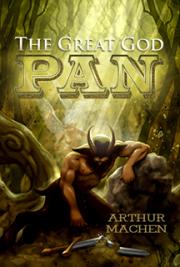Study Questions & Essay Topics
Study Questions
1. How does Utterson perceive the relationship between Jekyll and Hyde for most of the novel? Is his interpretation understandable? What are the limits of his knowledge?
Utterson spends much of the novel gathering evidence, in an informal fashion, about the Jekyll-Hyde relationship. All the evidence he collects points to the idea that Hyde is blackmailing Jekyll, which would explain why Jekyll turns pale whenever Hyde is mentioned. It would also explain why Hyde uses a personal check from Jekyll to pay off the parents of the girl he tramples and why Jekyll seems to be protecting Hyde after the Carew murder. Most important, it would explain why Jekyll has made a will that leaves his money to Hyde in the event of his death or “disappearance.” Indeed, the will’s reference to disappearance leads Utterson to assume that Hyde plans to murder the Jekyll; there seems little else that could cause a respectable doctor simply to vanish. All of Utterson’s deductions fit the facts at hand. They construe the Hyde-Jekyll connection as nothing more than the grip of a common criminal on his victim. They serve to make sense of a baffling situation, and they are reasonable.
But, of course, the reasonable nature of Utterson’s deductions proves precisely their downfall. Utterson remains so adamantly rational and sensible that he never once admits the possibility of a supernatural explanation. He is the embodiment of the Victorian mind, which is either unable or unwilling to acknowledge the existence of the perverse or transgressive.
2. Paying particular attention to Stevenson’s descriptions of the city at night, discuss how Stevenson uses descriptive passages to evoke a mood of dread.
At various junctures in Dr. Jekyll and Mr. Hyde, Stevenson uses vivid descriptions to evoke a sense of the uncanny and the supernatural, and of looming disaster. He first employs this technique in the opening scene, when Enfield relates his story of witnessing Hyde trample a little girl—a night when the streets were so empty that he began “to long for the sight of a policeman.”
This notion of the city as a fearful landscape recurs throughout the novel. After hearing the tale of Mr. Hyde, Utterson suffers from dreams in which Hyde stalks through “labyrinths of lamp-lighted city,” crushing children and whispering evil into Jekyll’s ears. In Utterson’s vision, London becomes a nightmare city, a place of terror where Hyde can perpetrate his crimes unchecked. The nightmare city reappears in Utterson’s later, waking description of London. Leading the police to Hyde’s apartment through a foggy pre-dawn, Utterson watches the mist swirl and transform the neighborhood into “a district of some city in a nightmare,” bringing a “touch” of “terror” even to the stolid policemen.
By the novel’s final scene, these cityscapes connote not only terror but also foreboding of even more horrifying dangers. When Poole fetches Utterson to Jekyll’s house, the wildness of the night and the empty streets fill the lawyer with “a crushing anticipation of calamity.” In all these descriptions, Stevenson creates a perceptual dread that reinforces the conceptual horror of his subject matter.
3. Discuss the narrative approach in the novel. What characterizes the way that events are reported? How does this method of narrative contribute to the thematic development of the novel?
Much of Dr. Jekyll and Mr. Hyde is written in a brisk, businesslike, and factual way. Dry and forthright, the text often resembles a police report more than a novel. This colorlessness derives in part from the personality of Mr. Utterson, through whose eyes most of the story is told. Proper and upright, Utterson approaches the events with a desire to preserve any possible trace of orderliness or rationality in them. But the narrative’s dry manner also seems to arise from the text itself. The original title of the novel, The Strange Case of Dr. Jekyll and Mr. Hyde, as well as chapter headings— including “Incident of the Letter” and “Incident at the Window”—seem to reveal an attitude of scientific detachment within the very structure of the novel. When the text presents the letters of Lanyon and Jekyll almost as if they were pieces of evidence, the story itself seems to become something of a scientific proof.
The attitude of formality and propriety in the narrative contrasts sharply with its mystical and uncanny content. With its prim demeanor, the text could be seen as attempting to repress or deny the subject matter that lurks inside it. Stevenson implies that a similar dynamic is at work in the Victorian Britain that he inhabits and portrays. The phenomenon plays itself out on the individual scale as well, of course—the existence of Hyde in the novel testifies to the existence of an evil or primitive aspect within each one of us, just barely hidden beneath a polite, unruffled exterior.
Suggested Essay Topics
1. Analyze the different stages of Jekyll’s experimentation with the Hyde persona. How do his feelings regarding the transformations change?
2. How does Jekyll interpret his relationship to Hyde? Do you agree with his understanding? Why or why not?
3. Examine the role of the minor characters in the novel, including Lanyon, Enfield, Carew, and Poole. How does Utterson’s connection to each of these men serve to advance the plot?
4. At one point in the novel, Hyde is described as a “troglodyte.” To what does this term refer? What was its significance in Victorian England? How does it relate to the themes of the novel?
5. Why do you think Stevenson chose to tell the story from Utterson’s point of view rather than use Jekyll’s from the beginning? How does this choice increase the suspense of the novel?
© http://www.sparknotes.com/lit/jekyll/







